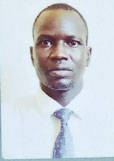By Agar Mayor Gai-Makoon
On Tuesday this week, South Sudan paid tribute to the heroes and heroines who lost their lives during the liberation struggle.
The 30th date of every July has been immortalized and set aside to remember these people and to remind ourselves about the efforts that each and every South Sudanese employed in order to have a country. But there is this particular question that everyone asks their self. Is South Sudan living in the past, or recollecting the past? This question is tough because it requires knowing the present state of affairs and being able to make a comparison with the past. The efforts that produced the two states of affairs are equally important. And perhaps, people can differ in giving answers to such questions. So, before I tell you my own answer, let’s critically look at the two phrases. “Living in the past’’, and “recollecting the past”.
Living in the past means dwelling so much on past events or life. Here in this scenario, the present life has not offered much and the person or institution seeks to comfort their self by remembering past achievements and success. It does not matter what they gain or lose from it. They are just after consolation. South Sudan made a great achievement—gaining independence at a very expensive cost. And while we remember the sacrifices, we also look to the present. What has independence presented to us so far? What fruits of independence do we enjoy today? Independence is a lifetime achievement that is so dear to the hearts of everyone. But when it does not meet the demands for which it was needed, it makes people regret their efforts and the costs they offered. It is the duty of the government to evaluate whether or not the fruits of independence are realized and being enjoyed by the citizens. Citizens express their satisfaction or dissatisfaction in very many ways. And we have seen these expressions in many forms. The more are ones of dissatisfaction with the fruits of independence or in short, the work of the government. People expected more jobs, good infrastructure, better education and a sound healthcare infrastructure and system in the new independent life given the power and control over their own resources and relations. For many citizens, this is still a dream so far from realization. The degree of citizens’ discontent with the current government is high. And the fact that we are the ones failing ourselves—not outsiders makes such days as martyrs’ day more of living in the past than happy celebrations.
Recollecting the past means remembering the past. It could be either a bad or good past, but something particular makes it worth remembering. For instance, 30th July is the day that Dr. John Garang, the former vice president of Sudan and leader of the SPLM/A lost his life in a plane crash. We can view this from two angles. First, some people remember him because he signed the comprehensive peace agreement that ended the war that had devastated most families and communities. And perhaps, this day is important for those people in the sense that no more killings, forced military recruitment or garden-produce robbery would exist because of the comprehensive peace agreement. So, they feel obligated to remember, honour and appreciate him even if he is no more.
Secondly, the other group remembers him because they are suffering. This group feels that Dr. John has died with the vision and everything that they fought for. Here, all the failures and suffering are because the leader has died according to them. And the fact that everything is not going the right way even when we have a country gives this argument strength and credibility. There is that element of truth in it and so rightly, South Sudan is also recollecting the past.
But particularly, the government honours this day because, through the lives of those martyrs, they are able to be an authority. They have the mandate to establish ideal elements of the state. It is after this establishment that the citizens will be happy for having the country and also having an authority that listens to them and fulfils their needs. But for now, citizens are happy because they have the country, they proudly call home. The government, as an authority, should consider interests of the people, by making sure that there is connection between the past and the present. There is a discontinuity that we have to mend and bind firmly so that the struggle is relevant in the present state of affairs. A past that does not link with the present is not worth remembering. Each and everyone have got a role to play for this country to prosper. But the government has a bigger role. Every constitutional postholder or leader must take upon their self the role of a change-maker. Change is something that people work for. It is not a privilege. And 30th July every year just reminds us about that.
The writer has a background in Socio-political philosophy. He studies Medicine in Egypt.




